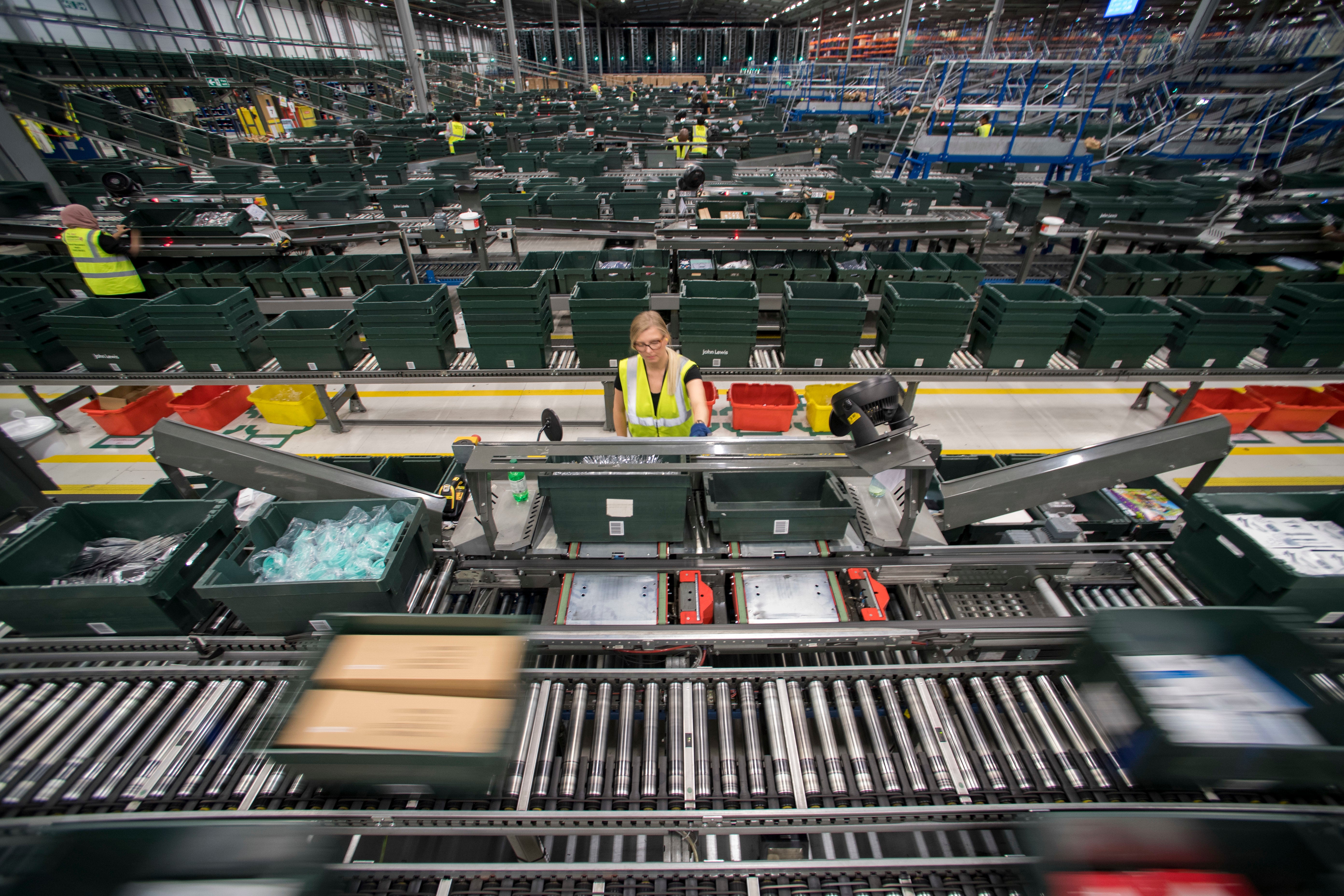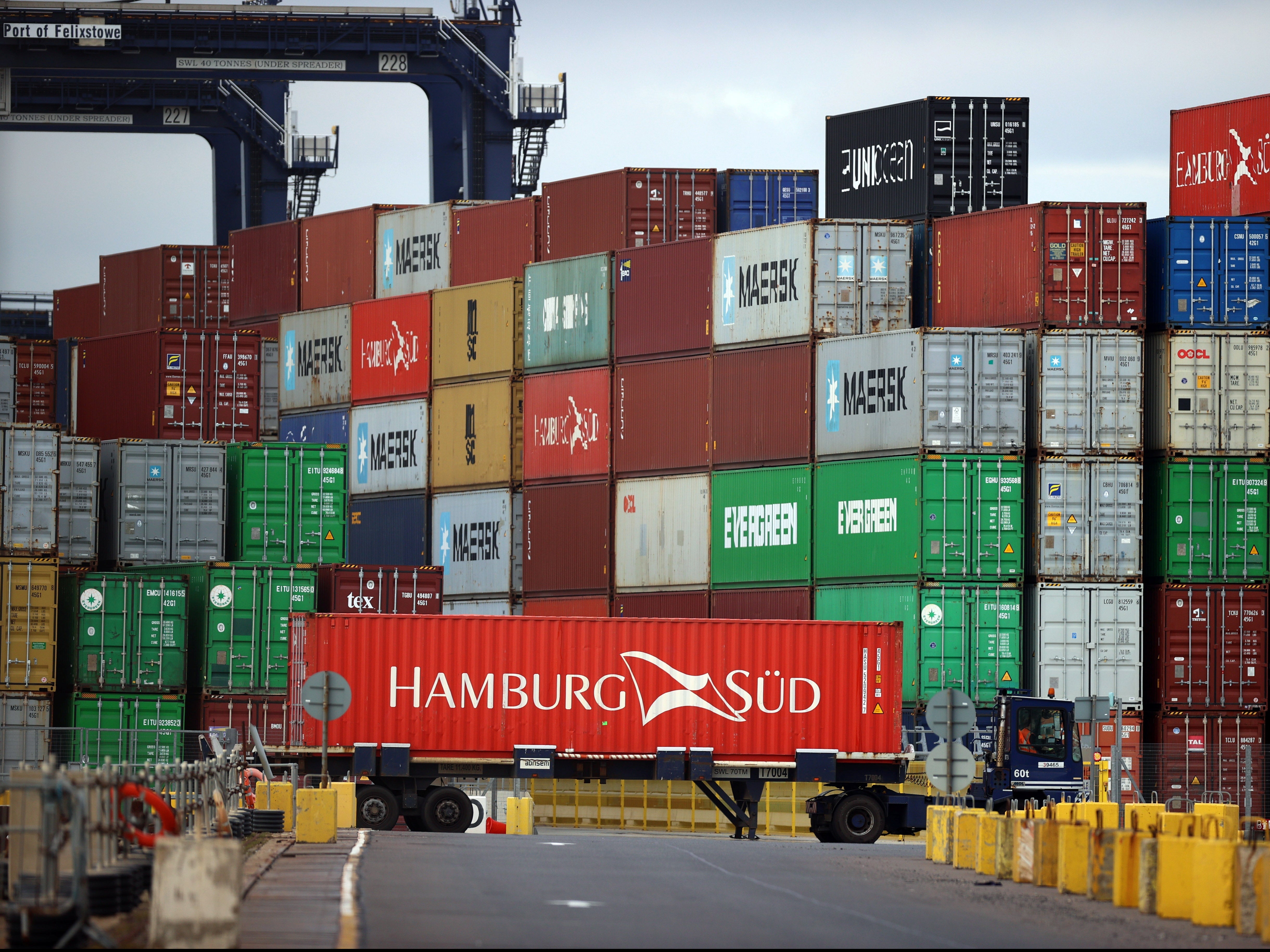Critical shortage of warehouse space adds further threat to Christmas supplies
Warehousing ‘creaking at the seams’ as firms struggle to find staff while space fills up

Your support helps us to tell the story
From reproductive rights to climate change to Big Tech, The Independent is on the ground when the story is developing. Whether it's investigating the financials of Elon Musk's pro-Trump PAC or producing our latest documentary, 'The A Word', which shines a light on the American women fighting for reproductive rights, we know how important it is to parse out the facts from the messaging.
At such a critical moment in US history, we need reporters on the ground. Your donation allows us to keep sending journalists to speak to both sides of the story.
The Independent is trusted by Americans across the entire political spectrum. And unlike many other quality news outlets, we choose not to lock Americans out of our reporting and analysis with paywalls. We believe quality journalism should be available to everyone, paid for by those who can afford it.
Your support makes all the difference.A critical shortage of warehouse space risks causing yet further delays to Christmas stock already threatened by a growing backlog at UK container ports and a lack of lorry drivers, businesses have warned.
Warehouse operators reported that the industry is “creaking at the seams” and said companies were running “dangerously” low on time to be ready for the busiest period of the year.
The lack of space is being compounded by a drastic shortage of warehouse workers, with firms competing to fill thousands of vacancies.
Staff are being offered pay rises of as much as 30 per cent, which are expected to be passed on to customers because margins in the logistics industry are so tight. The wage increases come on top of a more than fivefold jump in the cost of shipping a container of goods from China.
Shoppers are being advised to expect longer delivery times, higher prices and less choice as a result.
Warehouses have filled up rapidly thanks to a boom in online shopping during the pandemic, while businesses have responded to the chaos in global supply chains by building up stocks, putting further pressure on limited space.
Industry leaders say that a cumbersome planning system means they cannot build new warehouse space fast enough to keep up with demand.
It comes as shipping firms have been hit by gridlock this week at the UK’s biggest container port, Felixstowe, in Suffolk, where a lack of lorry drivers has resulted in goods piling up in warehouses.
“Ports are able to move boxes and load and unload vessels; the problem is moving goods on and off the port,” said Tim Morris, chief executive of the Major Ports Group. “We are having to very carefully manage storage space. Problems start when that fills up.”
Businesses face long waits to move their goods out of ports and are being forced to divert goods to Rotterdam and other European logistics hubs. Smaller vessels are then chartered to take goods into the UK.
We are just about coping but it really is quite close to being broken
“We’ve got stock backed up for weeks,” said Phil Chesworth, managing director of Midland Pallet Trucks, a supplier of industrial equipment. “Containers that came in this week won’t be delivered now until November. It is horrendous.”
Containers that cost £3,000 to ship before the pandemic now cost £20,000. “For us, the goods in one container might only be worth £36,000,” said Mr Chesworth.
Some of Midland’s goods are stuck in China because shipping firms are prioritising low-weight cargo, which is more profitable to ship, said Mr Chesworth. "We are at the back of the queue.” Warehousing problems have added to the growing bill.
“We are paying well above minimum wage, but we just cannot recruit staff. When the containers do turn up, we are struggling for staff to unload the boxes and put stock on shelves.
“The situation won’t improve this side of Christmas, definitely not. Normally the entry-level warehouse roles would have been filled in September to cover the peak two-week period, so the industry is dangerously running out of time.”

Extreme volatility in the flow of goods coming into the UK is the biggest source of pressure, said Gary Whittle, of the warehouse operator Meachers Global.
Goods that used to stay in Meachers’ warehouses for a day before moving on are now left for a week or more because of a lack of staff, clogging up further space.
Warehousing at ports is “creaking at the seams”, Mr Whittle said. "We are just about coping, but it really is quite close to being broken."
“A lot of people are doing a lot of things to help the sector through. I just hope it's enough. It's as tough as I’ve ever seen it and I’ve been in the industry for 40 years.”
He added: “It’s going to be a tough three to six months before things settle down. It’s going to be really, really difficult for everyone in our sector.”
Clare Bottle, chief executive of the UK Warehousing Association (UKWA), said the industry has a more severe labour shortage than the haulage sector, which is estimated to need 100,000 additional lorry drivers.
More than a third of forklift truck drivers in the UK are EU nationals, compared with 15 per cent of lorry drivers, according to the UKWA’s figures.
An exodus of skilled workers after Brexit has coincided with a surge in demand for warehouse staff.
“Activity that would have taken place in a shop is now taking place in a warehouse,” said Ms Bottle.
“A picker preparing goods for e-commerce has to pick individual goods for each order, print off address labels, pack them and divide them up depending on which courier is delivering them.
“That demands more space and more labour, which we just haven't got in the UK.”
Big retailers including Amazon have attracted staff from other companies by offering pay rises and bonuses. Ms Bottle said the situation amounted to "robbing Peter to pay Paul" because it does not solve an economy-wide shortage of workers.
Job vacancies hit a record high of 1.1 million between July and September while the unemployment rate remained low at 4.5 per cent, according to official figures released this week.
The UKWA calling on the government to honour its previous pledges to promote logistics as a career to young people.
“Warehousing doesn't sound sexy. It conjures up images of old men in brown coats and it really is not like that,” Ms Bottle said.
The trade body also wants ministers to update planning rules so that warehouse space can be built rapidly in the optimum locations.
“Logistics companies have sophisticated software to identify the best locations, but the planning system doesn’t recognise that,” Ms Bottle said.



Join our commenting forum
Join thought-provoking conversations, follow other Independent readers and see their replies
Comments